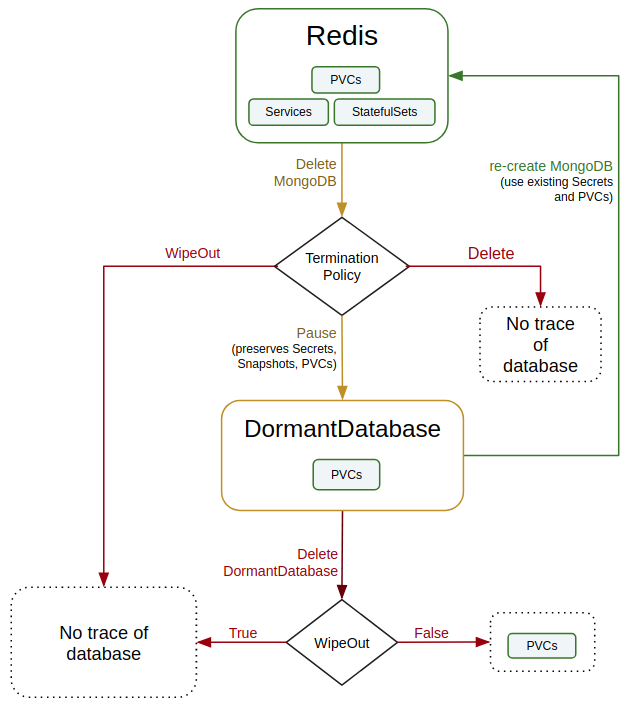You are looking at the documentation of a prior release. To read the documentation of the latest release, please
visit here.
New to KubeDB? Please start here.
Supported Redis Features
| Features | Availability |
|---|---|
| Clustering | ✗ |
| Instant Backup | ✗ |
| Scheduled Backup | ✗ |
| Persistent Volume | ✓ |
| Initialize using Snapshot | ✗ |
| Initialize using Script | ✗ |
| Custom Configuration | ✓ |
| Using Custom docker image | ✓ |
| Builtin Prometheus Discovery | ✓ |
| Using CoreOS Prometheus Operator | ✓ |
Life Cycle of a Redis Object

Supported Redis Versions
| KubeDB Version | Redis:4.0.6 |
|---|---|
| 0.1.0 - 0.7.0 | ✗ |
| 0.8.0 | ✓ |
| 0.9.0-rc.2 | ✓ |
Supported RedisVersion CRD
Here, ✓ means supported and ✗ means deprecated.
| NAME | VERSION | KubeDB: 0.9.0-rc.2 |
|---|---|---|
| 4 | 4 | ✗ |
| 4-v1 | 4 | ✓ |
| 4.0 | 4.0 | ✗ |
| 4.0-v1 | 4.0 | ✓ |
| 4.0.6 | 4.0.6 | ✗ |
| 4.0.6-v1 | 4.0.6 | ✓ |
User Guide
- Quickstart Redis with KubeDB Operator.
- Monitor your Redis database with KubeDB using out-of-the-box CoreOS Prometheus Operator.
- Monitor your Redis database with KubeDB using out-of-the-box builtin-Prometheus.
- Use private Docker registry to deploy Redis with KubeDB.
- Use kubedb cli to manage databases like kubectl for Kubernetes.
- Detail concepts of Redis object.
- Detail concepts of RedisVersion object.
- Want to hack on KubeDB? Check our contribution guidelines.



































